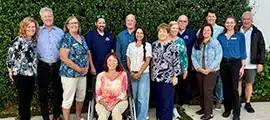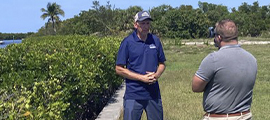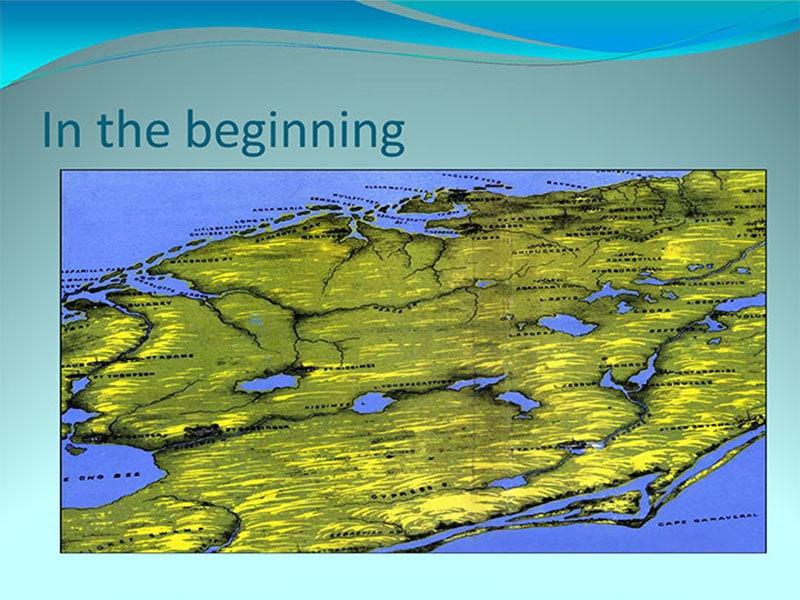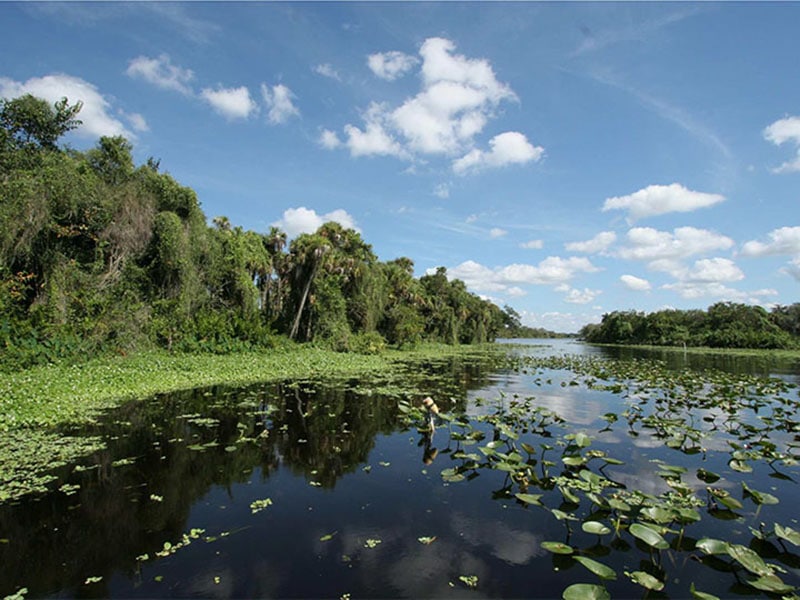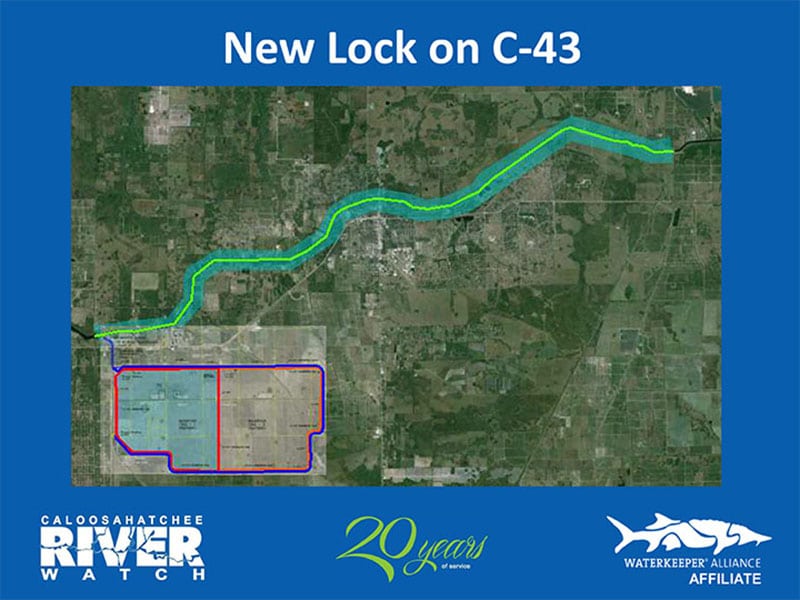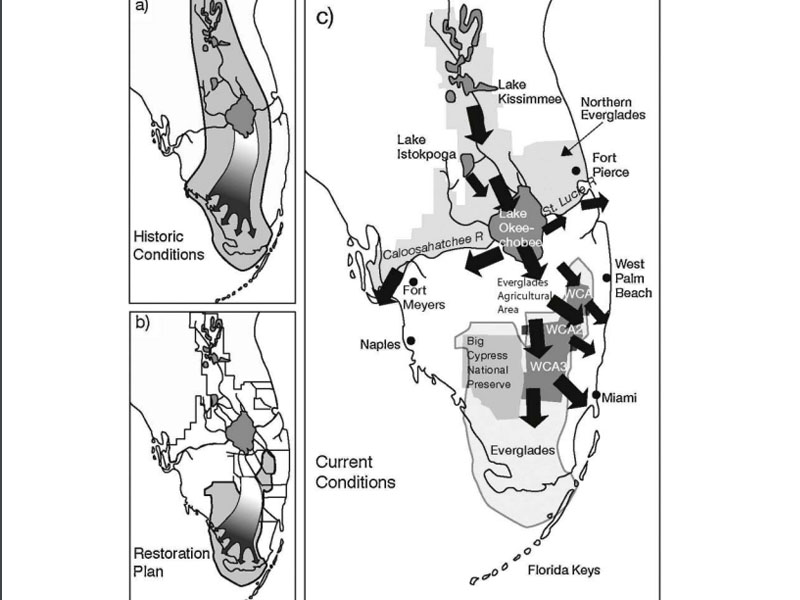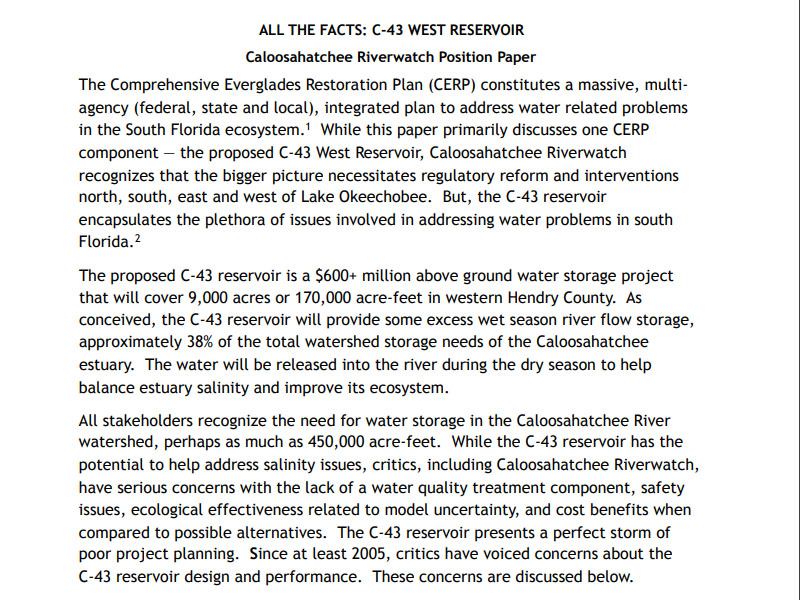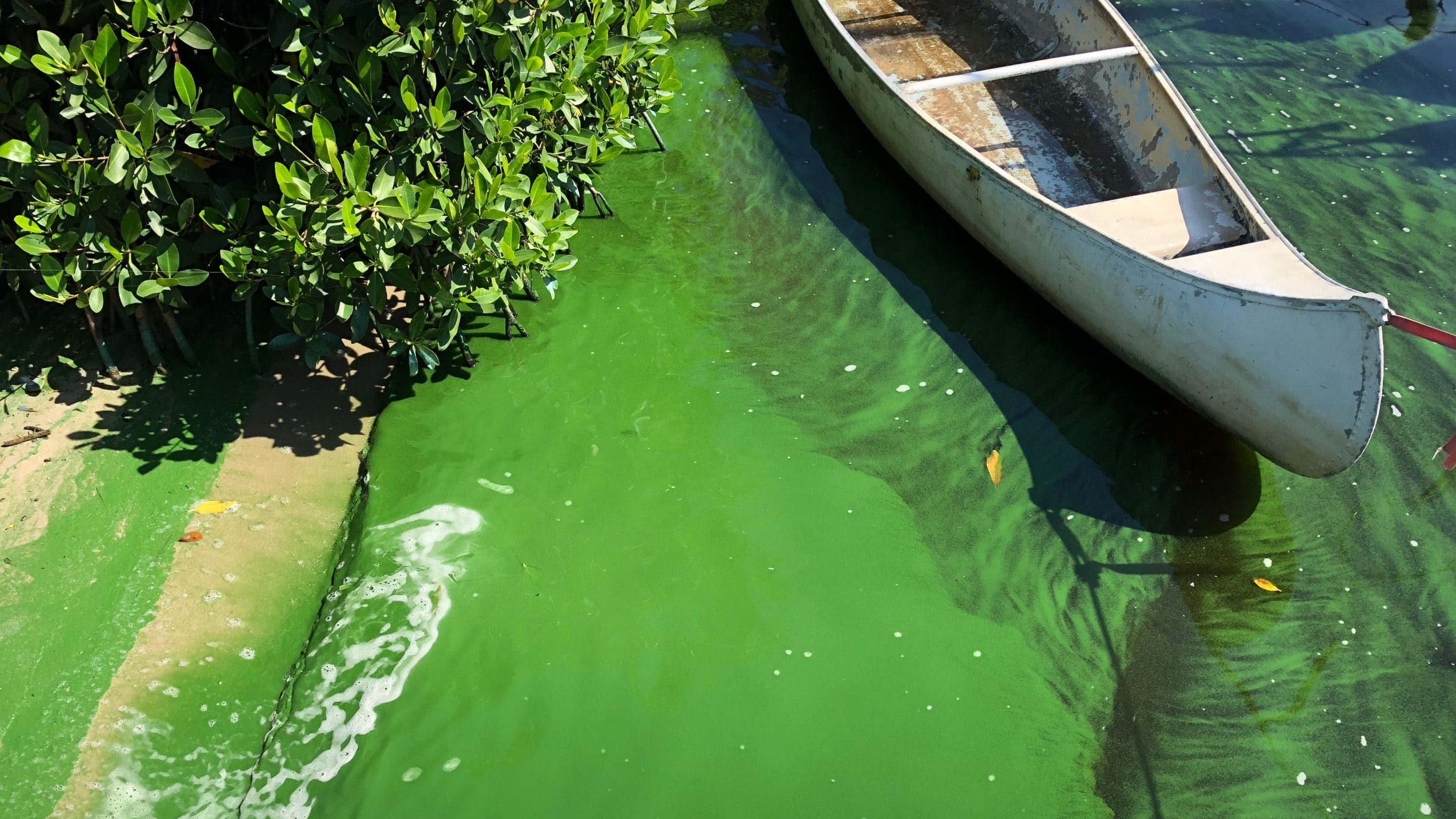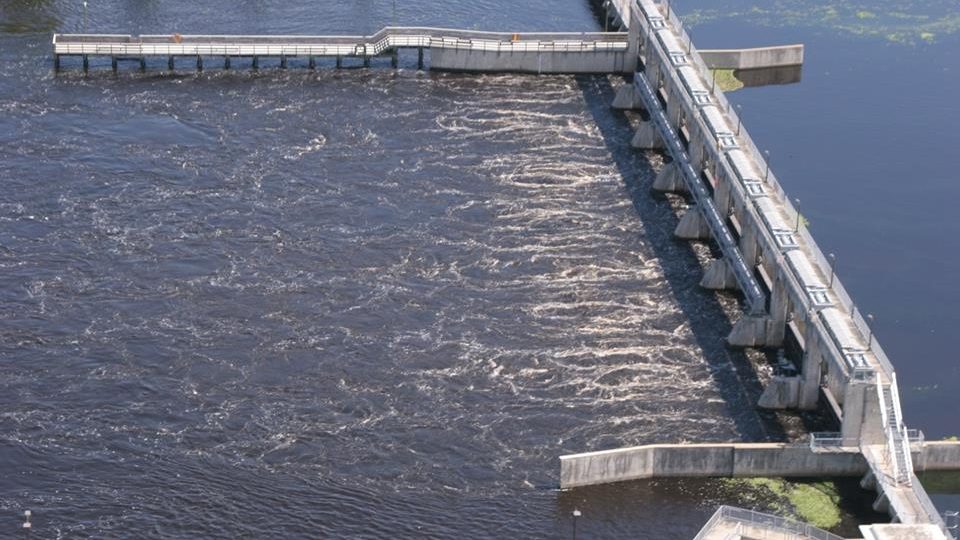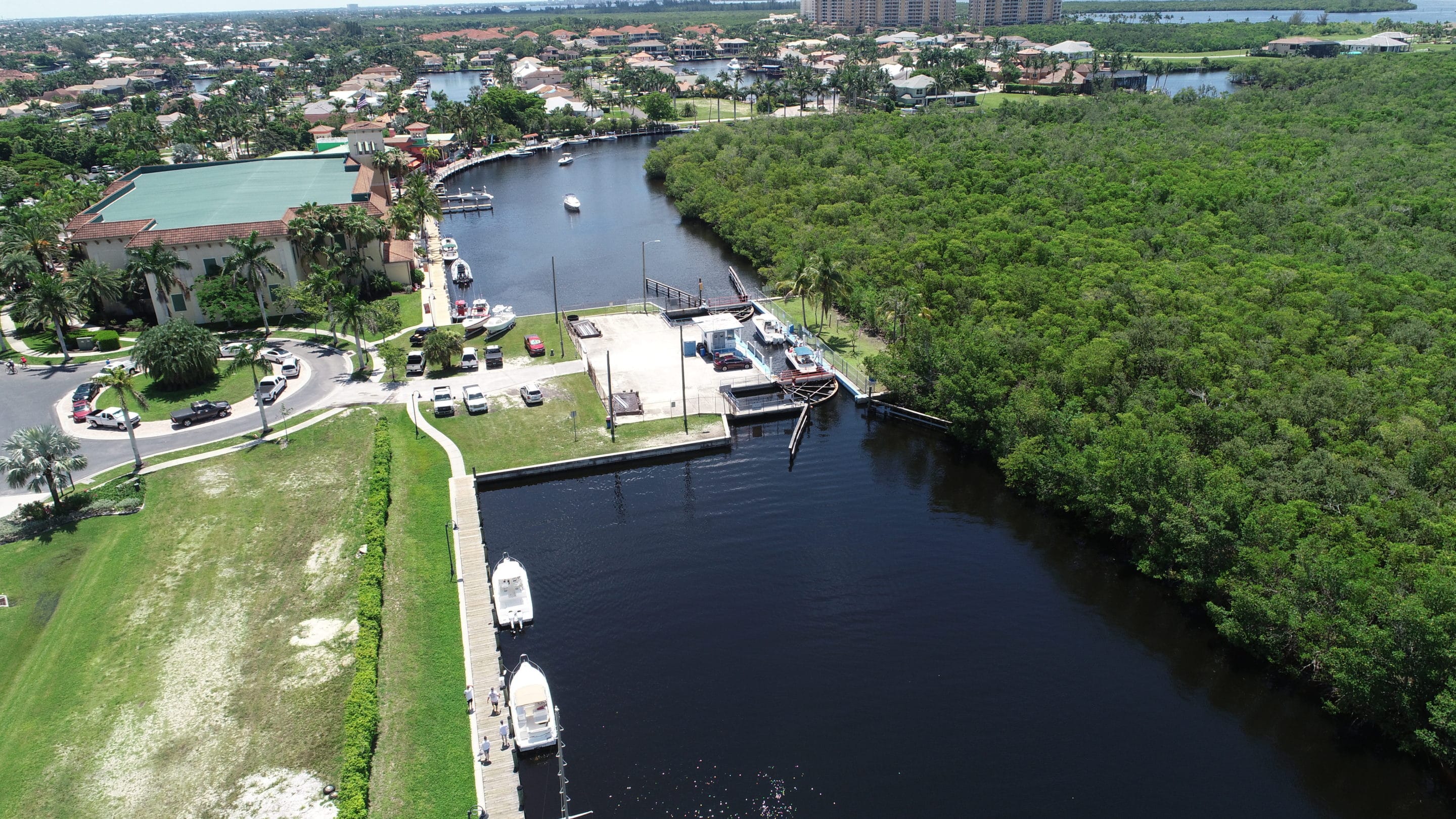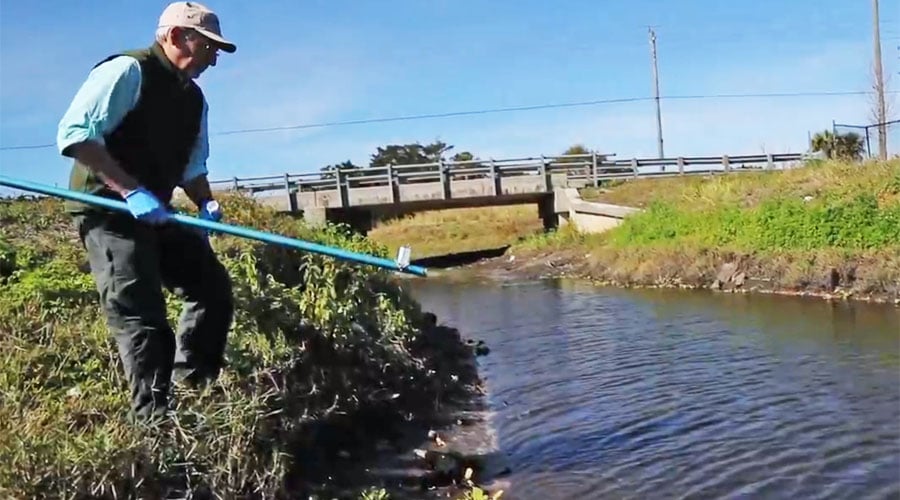Issue:
C-43 West Reservoir
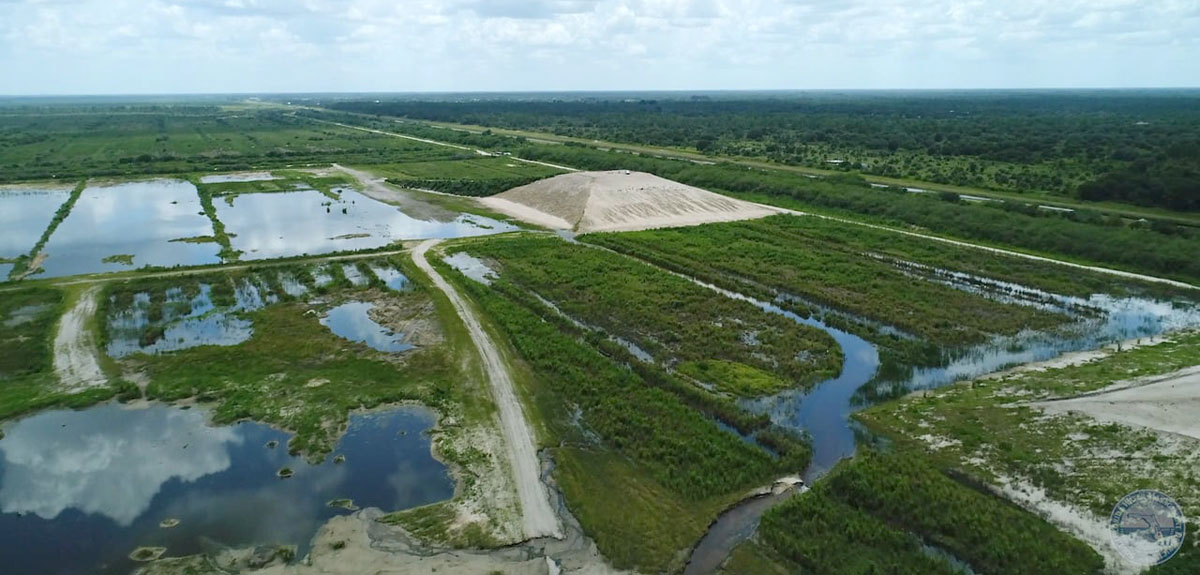
Caloosahatchee Water Storage
The C-43 West Reservoir is a massive above-ground, water storage project that will cover 9,000 acres in western Hendry County. As conceived, the C-43 reservoir will provide some excess wet season water storage capacity when the Caloosahatchee River has too much fresh water. However, its primary function would be to augment flows to the Caloosahatchee Estuary when during the dry seasons, the estuary becomes too saline. In our view, the largest issue with the project is that it lacks an ideal water quality component. When the weather warms, the C-43 reservoir will become an incubator for harmful algal blooms (HABs), more commonly known as blue/green algae. As it currently stands, an in-reservoir injection of alum and sand is the only planned solution, instead of a filter marsh. The C-43 reservoir is still under construction and has experienced several delays and budget overruns.
Resources & Presentations
C-43 West Reservoir
Conclusion and Recommendations
- The C-43 reservoir, as designed, will promote the growth of algae including the harmful toxin-producing species collectively referred to as blue-green algae. Future design or design changes must include a water quality treatment component.
- The C-43 reservoir, as designed, creates a safety issue related to berm or dike failure. The engineering plans need extensive scrutiny with possible design revisions.
- The C-43 reservoir has marginal cost-benefit attributes. Alternatives such as regulatory reform make more sense than expensive infrastructure projects.
- A conceptual alternative or enhancement of the current C-43 reservoir design should include additional storage north and south of Lake Okeechobee enabling greater “balancing” performance of the Lake with regard to water supply and excess discharge to the Caloosahatchee Estuary. Such additional storage could allow for greater design flexibility and thus could include a water quality component for the C-43 reservoir.
Priority Issues
Harmful Algal Blooms
Cyanobacteria & Red Tide
Cyanobacteria (blue-green algae) and Karenia brevis (red tide) have been making major impacts on Southwest Florida.
Lake Okeechobee Discharges
Revise System Operating Manual
The Caloosahatchee River often suffers from too much freshwater in the wet season, and not enough freshwater in the dry season.
Cape Coral Spreader Canals
Nutrient & Sediment Loading
The City of Cape Coral is working to remove large storm-water barriers to make recreational boating more convenient.
Bacteria Monitoring
Fecal Indicator Bacteria
Calusa Waterkeeper has been at the forefront of monitoring this Fort Myers tributary for fecal bacteria indicators.

